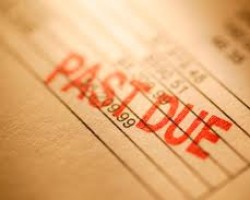
UNITED STATES BANKRUPTCY COURT
FOR THE DISTRICT OF OREGON
IN RE
LESTER G. MONK, and
MARY L. MONK,
Debtors.
___________________
LESTER G. MONK, and
MARY L. MONK,
Plaintiffs
v.
LSI TITLE COMPANY OF OREGON, LLC,
LITTON LOAN SERVICING, LP,
U.S. NATIONAL BANK ASSOC., as Trustee
under a pooling and servicing agreement dated as of
March 1, 2002,
MORGAN STANLEY DEAN WITTER CAPITAL
I INC. TRUST 2002-NCI, and
DOES 1 through 10,
Defendants.
EXCERPTS:
DISCUSSION
A. Litton’s Motion to Dismiss
Defendant Litton has filed a motion to dismiss on the following grounds:
1) Plaintiffs do not have a private right of action under the discharge injunction and no violation of the
discharge injunction occurred under the facts of this case.
2) Plaintiffs’ Chapter 13 Plan did not affect the lien of the Defendants, which rode through bankruptcy
unaffected unaffected by the order disallowing the claim of PCFS, Litton’s predecessor in interest.
3) Plaintiffs entered into a novation of the loan after the discharge order was entered in the Chapter 13 case.
4) The bankruptcy court lacks post-confirmation subject matter jurisdiction over the claims set forth in the
Complaint.
5) Plaintiffs have failed to state a claim for rescission based on the foregoing and the fact that they failed to
plead that they could repay moneys owed to the Defendants in order to completely unwind the transaction.
6) The claim for violation of the FDCPA should be dismissed based on the foregoing and because: a)
Defendants are not “debt collectors” within the meaning of the FDCPA; b) the FDCPA claim is based on
alleged conduct outside the statute of limitations; and c) no FDCPA claim lies for alleged violations of the
discharge injunction.
[…]
Litton also seeks dismissal of the Claim on the basis that under the facts alleged, no violation of the
discharge injunction occurred. To determine whether this is so, some analysis of the actions which occurred
in the case must be made. First, the Trustee filed an objection to the secured claim of PCFS because it had
not provided the information the Trustee had been seeking to verify the secured status and perfection of the
claim. Proper notice was made to PCFS of the objection and order and the fact that it was required to
respond within 32 days or its claim would be “disallowed in full.” When PCFS failed to respond, its claim
was “disallowed.” Litton argues in its second ground for dismissal that PCFS’s lien was unaffected by the
disallowance of its claim and “rode through” bankruptcy unscathed. It is true that a lien will survive
bankruptcy despite the failure of the holder to file a proof of claim for the related claim. See Hamlett v.
Amsouth Bank (In re Hamlett), 322 F.3d 342 (4th Cir. 2003). Here, however, a proof of claim was filed, and
subsequently disallowed on the Trustee’s objection.
Section 506(d)4 provides as follows:
To the extent that a lien secures a claim against the debtor that is not an allowed secured
claim, such lien is void, unless —
(1) such claim was disallowed only under section 502(b)(5) [unmatured support obligation] or
502(e) [certain claims for reimbursement or contribution] of this title; or
(2) such claim is not an allowed secured claim due only to the failure of any entity to file a
proof of claim under section 501 of this title.
Because PCFS’s claim was “disallowed,” it was not an “allowed secured claim,” and the related lien
was void pursuant to § 506(d). Defendant’s claim was not of the type described in § 506(d)(1), and its claim
was disallowed for reasons other than its failure to file a proof of claim. Thus, when the discharge order was
entered in Debtors’ case, Defendant held a “disallowed” claim and a void lien.
Section 1328 provides in part:
(a) As soon as practicable after completion by the debtor of all payments under the
plan, unless the court approves a written waiver of discharge executed by the debtor after the
order for relief under this chapter, the court shall grant the debtor a discharge of all debts
provided for by the plan or disallowed under section 502 of this title, except any debts —
(1) provided for under section 1322(b)(5) of this title.
****
Defendant argues that Debtors did not file an amended Plan after disallowance of its claim and that
the Plan continued to provide for ongoing payments to Defendant on the long-term debt pursuant to ¶ 4, and
that the Plaintiffs did, in fact, continue to make the ongoing payments to PCFS even after the claim was
disallowed. If follows, argues Defendant, that the debt was not discharged under the exception at §
1328(a)(1).
Defendant’s argument fails for the following reason: The debt was disallowed under section 502 and, as provided by § 1328(a), it was discharged. A “debt” is defined at §101(12) as “liability on a claim.” A “claim” is defined as a “right to payment . . . .” §101(5)(A). Once the claim was disallowed, PCFS no longer had a right to payment and thus no longer had a “claim” or a “debt.” As it no longer possessed a “debt,” it follows that it did not have a “debt[] provided for under section 1322(b)(5),” and cannot use § 1328(a)(1) to except its nonexistent debt from discharge.
[…]
[ipaper docId=62063472 access_key=key-134gz14erxuyifc9odk0 height=600 width=600 /]
© 2010-19 FORECLOSURE FRAUD | by DinSFLA. All rights reserved.



my name is lester monk can anyone tell me if they can appeal this memorandom of opinion or if judge can reverse this 6yr after original court order